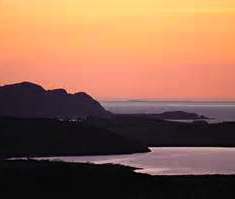 Not long ago, my husband and I attended a memorial service where the song “Morning Has Broken” was sung by an a cappella group. The voices filled the sunlit New England church where we were sitting with a sense of pure joy. Perhaps best known in its incarnation as a Cat Stevens hit in the early 1970s, it’s a hauntingly beautiful song that sounds as old as time. So I was surprised to learn that the lyrics were actually first published in 1931, written by the English author Eleanor Farjeon. It’s the music that the hymn is set to — a traditional Scottish Gaelic tune known as ‘Bunessan’ — that must account for its feeling of timelessness.
Not long ago, my husband and I attended a memorial service where the song “Morning Has Broken” was sung by an a cappella group. The voices filled the sunlit New England church where we were sitting with a sense of pure joy. Perhaps best known in its incarnation as a Cat Stevens hit in the early 1970s, it’s a hauntingly beautiful song that sounds as old as time. So I was surprised to learn that the lyrics were actually first published in 1931, written by the English author Eleanor Farjeon. It’s the music that the hymn is set to — a traditional Scottish Gaelic tune known as ‘Bunessan’ — that must account for its feeling of timelessness.
Bunessan is a small, seaside village on the southern tip of the Isle of Mull, off the west coast of Scotland. Nobody knows when exactly the traditional Gaelic melody was composed, but it was first given lyrics by Mary M. MacDonald who lived near Bunessan in the 1800s. The hymn which she called “Leanabh an Aigh” means “Child in the Manger” in English and remains a popular Christmas carol. A monument to MacDonald stands outside the village, and the ruins of the house she lived in are nearby. But her lasting memorial is the melody she first put into words — and which never seems to grow old.
Morning Has Broken Morning has broken like the first morning, Blackbird has spoken like the first bird. Praise for the singing, Praise for the morning, Praise for them springing fresh from the world. Sweet the rain’s new fall, sunlit from heaven, Like the first dewfall on the first grass. Praise for the sweetness of the wet garden, Sprung in completeness where his feet pass. Mine is the sunlight, Mine is the morning, Born of the one light Eden saw play. Praise with elation, praise ev’ry morning, God’s recreation of the new day. Morning has broken…Click here to listen to Cat Stevens perform the song: httpss://www.youtube.com/watch?v=U5sSEkZ86ts




That was just beautiful, Liza. And everytime I hear that song, I feel a peaceful reverence. Now I know why. And I’m happy to have the words in print because saying them out loud, as I just did, gave me an added admiration for their meaning.
Yes, I agree, Jackie. The lyrics are so beautiful — and mysterious. I suppose the “he” must be God walking in the garden of Eden on the day of creation.
Wow. I’ve listened to that beautiful song hundreds of times but never knew most of the lyrics. Reading them multiplies the delight of this song. Brings me back to the sweetness of my younger days…
Thanks, Leslie. I got a kick of watching the YouTube video of Cat Stevens performance. But what a wonderful voice he has — and what a terrific arrangement!
I have always loved this song! Thanks for providing the history and more meaning behind it! It makes it even more special, thanks Liza!
You’re welcome. Jenn. It’s a beautiful hymn — and so simply steeped in the creation story.
Well said, Jennifer. Thank you for this, Liza!
Thank you for posting this Liza. This is one of my all time favourites. I frequently used it as an audition piece when I was younger. Now, living here in England, the history you portrayed is lovely. Must go for a visit. Cheers!
I can imagine that it would make a great a beautiful audition piece. Thank you, Debra!
Hi Liza, and Jackie, wow a voice from the past,
I have another possible take on the poem. It could be the morning after the flood.
The first line says ” like the first morning” …comparing to the past. Also “like the first dew fall” and finally “God’s recreation of the new day”…not “creation” of the new day.
Either way it’s a beautiful poem put to beautiful music.
P.S. Whenever God is referenced in scripture as He or His the “H” is always capitalized.
Thanks for all your messages, by the way who does your book covers?
Hey, Barry, how great to hear from you. That’s an interesting take on the song — and it certainly makes sense. Thanks so much for writing and sharing your thoughts. My covers are done by my publisher New American Library. Aren’t they pretty? Please stay in touch! xxx
And I’ll add my vooice to the chorus of people who have listened to this song all these years without appreciating what it was saying. You’re terrific, Liza, opening our eyes to so many things!
Thanks, Susan!